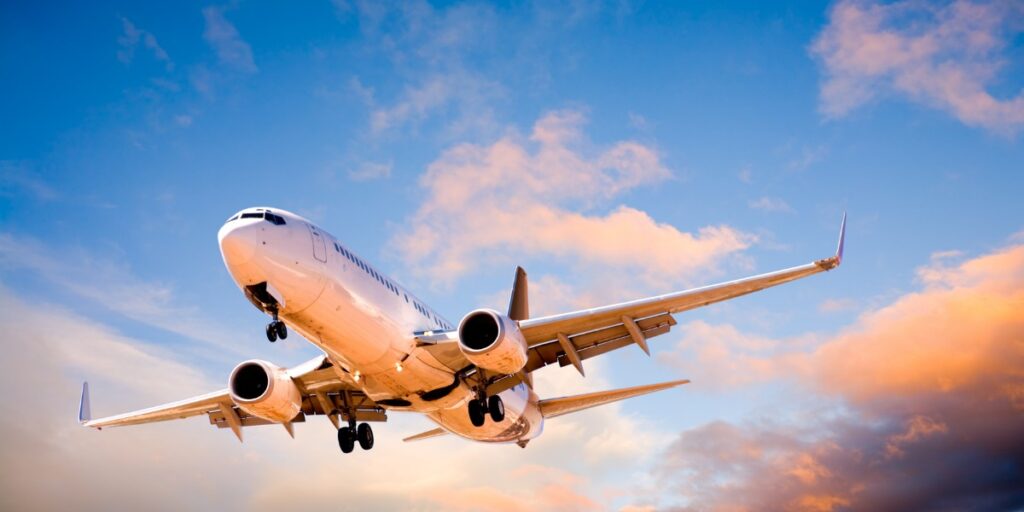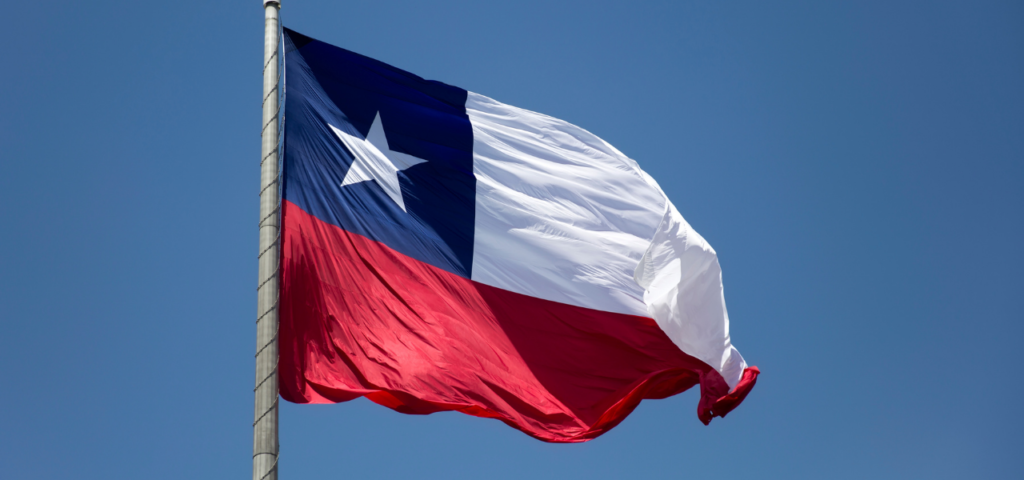It is well known that the aviation sector largely contributes to the increase of CO2 emissions. However, the industry aims to ensure any rise in international aviation emissions above 2020 levels are compensated with the use of carbon credits elsewhere to fight climate change.
What is CORSIA?
Carbon Offsetting and Reduction Scheme for International Aviation (CORSIA)is a global offsetting scheme developed by the International Civil Aviation Organization (ICAO) and adopted in October 2016, whereby airlines and other aircraft operators will offset any growth in CO2 emissions above 2020 levels.
The offsetting of CO2 emissions will be done through the purchase and cancellation of emission units from the global carbon market by aircraft operators.
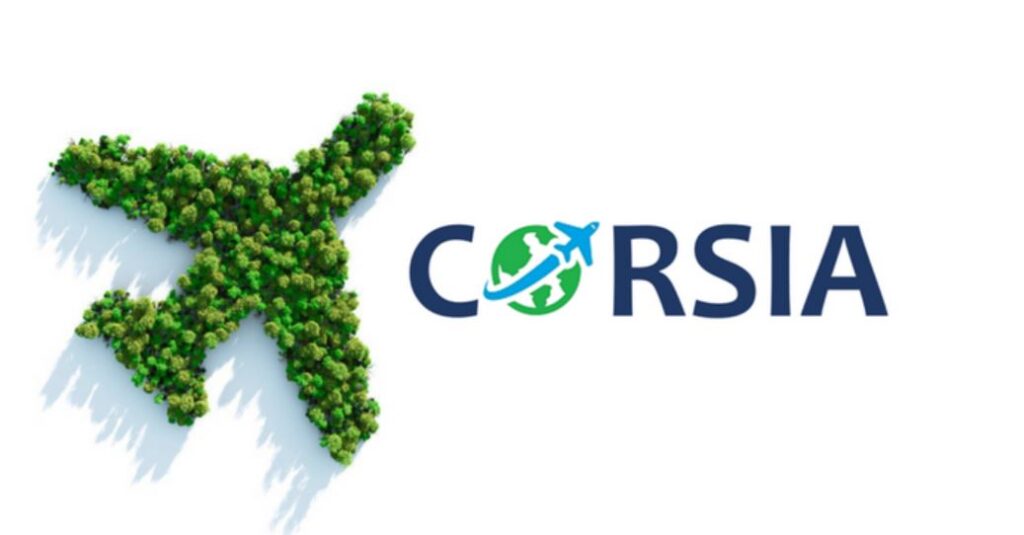
The trigger
Domestic aviation emissions were already covered by the Paris Agreement in national pledges. However, emissions from international flights had not been included in the international climate regime administered by the United Nations Framework Convention on Climate Change (UNFCCC), as these fell outside the scope of climate action.
It was in 2009 when governments agreed to reduce and allocate international aviation emissions through the International Civil Aviation Organization (ICAO).
International flights account for around 65% of CO2 emissions, and it is estimated that the sector is responsible for 2% of the greenhouse gasses that contribute to climate change.
For this reason, the air transport industry has set out to:
- Improve fuel efficiency by 1.5% per year from 2009 until 2020
- Assure carbon-neutral growth by limiting CO2 emissions from 2020
- Halve its CO2 emissions by 2050 compared with 2005.
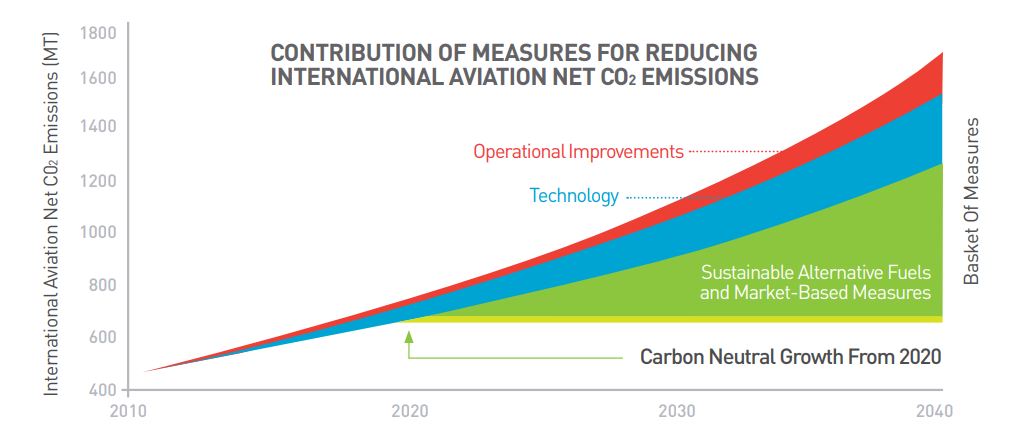
How does CORSIA work?
The implementation of CORSIA will be in three phases: two initial, voluntary phases (2021-2023 and 2024-2026) and a mandatory phase that will take place starting 2027.
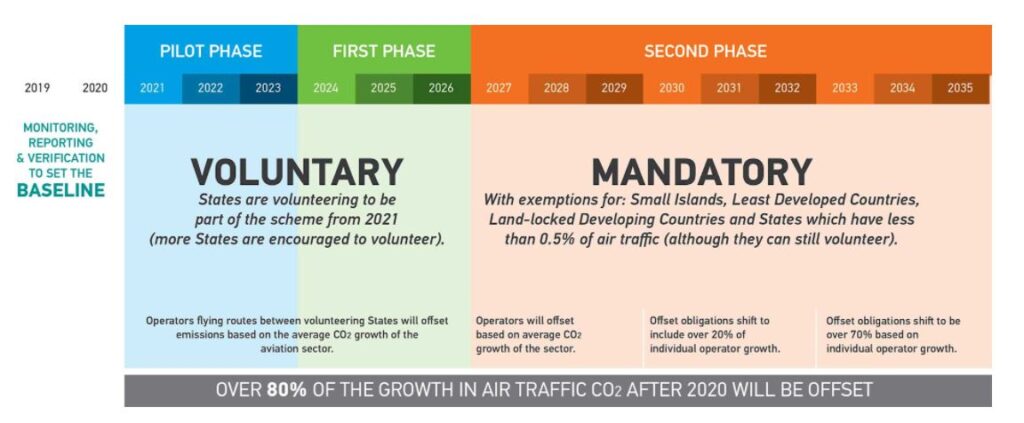
During the initial phases, CORSIA will only apply to international flights between states that have volunteered to take part, meaning that international flights to and from states that have not volunteered will be exempt.
During the mandatory stage, which begins in 2027, CORSIA will cover all international flights (including those traveling to or from states that had not volunteered for the early phases).
There will be, however, some small exceptions:
- Least developed countries, small island developing states and landlocked developing countries (these states can volunteer if they wish to).
- States that have a very small share of international traffic.
Who will be offsetting?
Airlines and other aircraft operators will be subject to offsetting requirements. This includes all aircraft operators, from large passenger airlines, cargo airlines, business aviation and even private aviation.
Monitoring, reporting and verification
As of 1 January 2019, all ICAO member states whose aircraft operators operate international flights are required to monitor, report, and verify (MRV) CO2 emissions from those flights every year, regardless of their participation in CORSIA.
To guarantee data accuracy, annual emissions reports will need to be verified by an independent third-party verification body prior to submission. Governments will then work with ICAO to inform airlines of the number of offset credits they need.
CORSIA Eligible Emissions Units
Not all carbon credits available on the market are tradable under the CORSIA scheme. There is a list of principles that have been applied in all offset crediting programs, both regulatory and voluntary, to address social and environmental integrity.
CORSIA Eligible Emissions Units are units that meet the eligibility criteria contained in the ICAO document entitled “CORSIA Emissions Unit Eligibility Criteria”.
In general terms, CORSIA-eligible emission units must meet the criteria associated with vintage, timeframe, scope, methodologies, etc., and be registered under the following programs:
- American Carbon Registry (ACR)
- Architecture for REDD+ Transactions (ART)
- China GHG Voluntary Emission Reduction Program
- Clean Development Mechanism (CDM)
- Climate Action Reserve (CAR)
- Global Carbon Council (GCC)
- The Gold Standard (GS)
- Verified Carbon Standard (VCS)
What’s next?
All sectors of the industry are working on ways to reduce fuel use and emissions further.
Working to ensure the agreement on CORSIA is just one of four pillars that, together with new, less carbon-intensive technology, more efficient operations and improved infrastructure, aviation could achieve its long-term goal of reducing CO2 emissions by 50% by 2050.
Many airlines are aware of these challenges, accelerating their efforts to move towards carbon neutral, and we are here to help them achieve their goals.
At ALLCOT Trading, our mission is to promote additional sustainable impact with every transaction. If you want to know more about CORSIA credits and also have an extra positive impact on the environment by trading with us, please reach out to Nadia Mengucci (nm.ag@allcot.com) and together we will make it happen.

